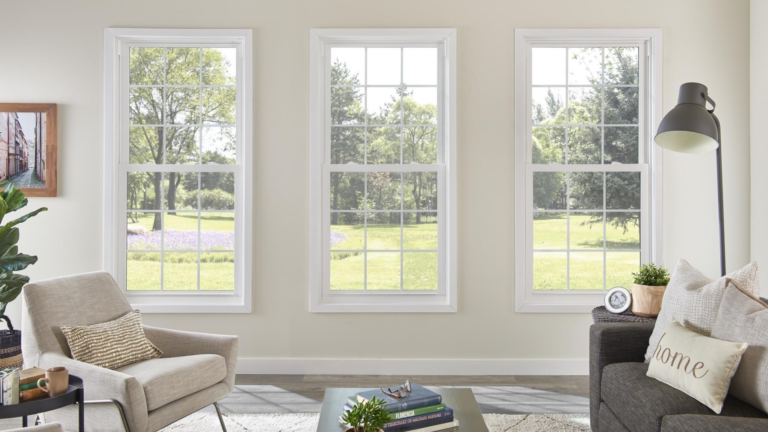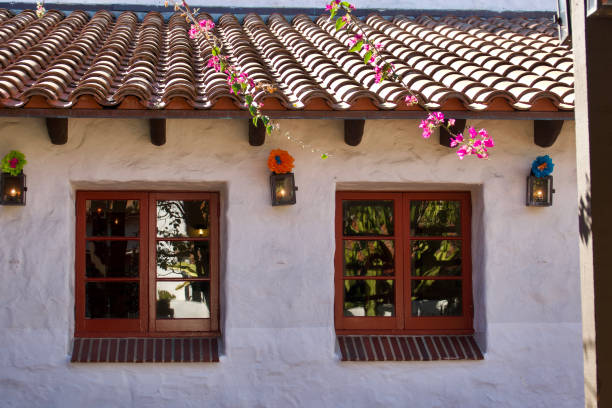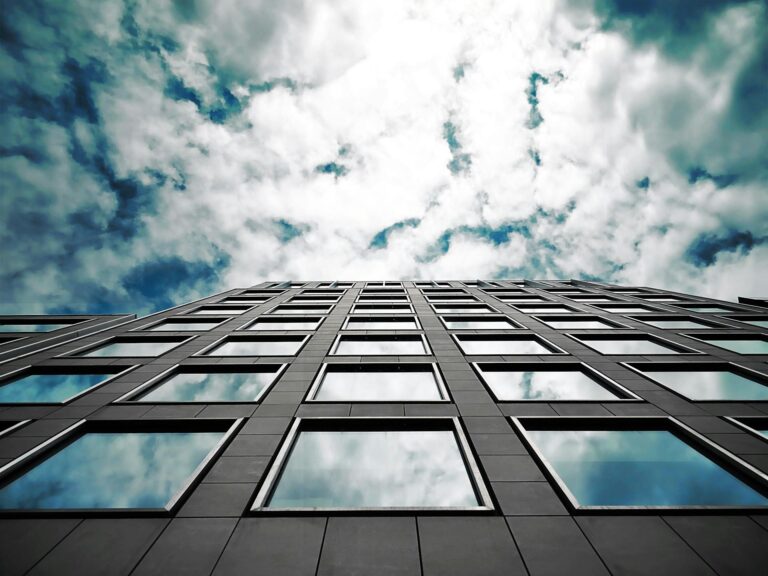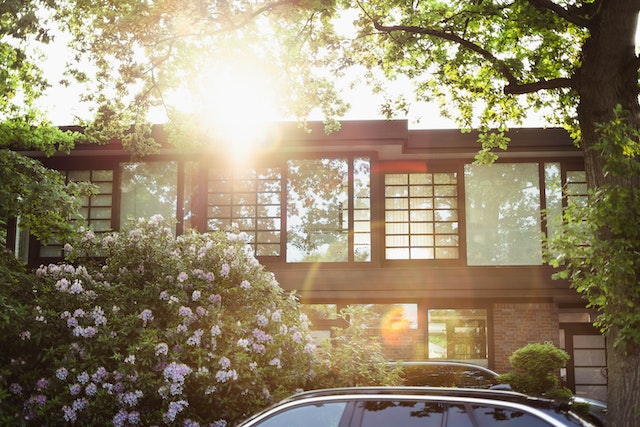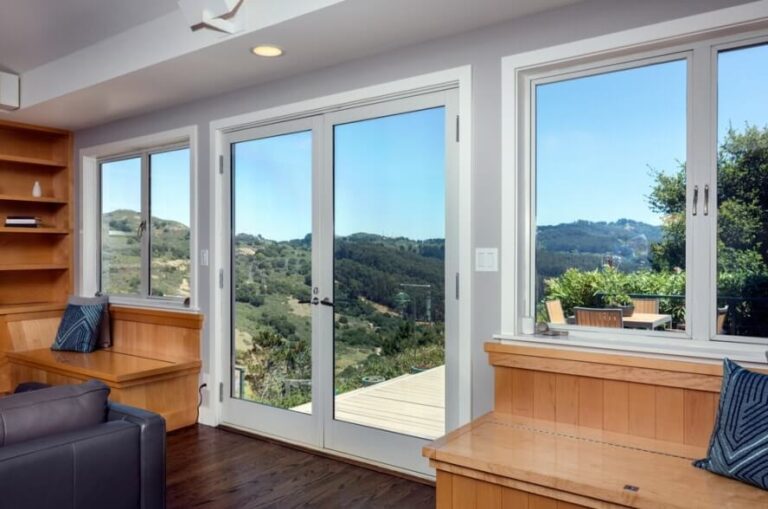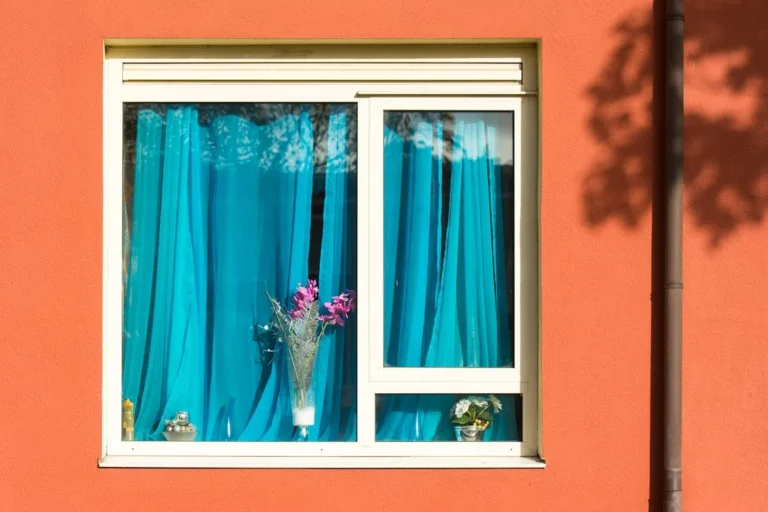
Unlock the secrets of window replacement costs with our comprehensive guide, designed to help homeowners navigate the complexities of budgeting, material selection, and installation processes. Window replacement is a significant home improvement project that not only enhances the aesthetics of your home but also boosts its energy efficiency.
The cost of window replacement varies based on several factors including the type of windows, materials used, and the complexity of installation. Discover practical insights and expert advice to make informed decisions, ensuring your window replacement project is both cost-effective and beneficial for your home. This process can significantly impact your living comfort and property value.
In this comprehensive guide, we’ll explore the various facets of window replacement costs to help you make an informed decision.
The Importance of Window Replacement

Window replacement is not just a home improvement task; it’s an investment in energy efficiency, security, and aesthetics of your home. By understanding the different factors that influence these costs, you can make an informed decision that balances your needs and budget. Remember, the cheapest option may not always be the best in the long run, especially when it comes to energy efficiency and durability.
How Much Does a Window Replacement Cost?
Window replacement costs typically range from $450 to $1,400 per window when installation labor is factored in. The price variance depends on the window size, materials, brands, custom options, and contractor rates. Though the range is wide, many homeowners find they end up paying around $750 per window replaced. Here are reasons affecting window replacement cost:
Window Panes Used
- Single Pane Windows: Generally the least expensive but offer minimal insulation.
- Double Pane Windows: Offer better insulation and are moderately priced.
- Triple Pane Windows: Provide the best insulation but are the most expensive.
The cost also varies based on the window frame material:
- Vinyl Frames: Affordable and low maintenance.
- Wood Frames: More expensive, offering a traditional look.
- Aluminum Frames: Mid-range, known for their durability.
- Fiberglass Frames: On the higher end but offer excellent energy efficiency.
Cost Breakdown by Window Type
- Casement Windows: Ideal for hard-to-reach places, offering good ventilation.
- Double Hung Windows: Easy to clean and maintain, suitable for most homes.
- Bay Windows: Provide expansive views and add architectural interest but are more costly due to their size and complexity.
Energy Efficiency and Savings
Investing in energy-efficient windows can lead to significant savings on energy bills. Features like double glazing, low-E coatings, and energy-efficient materials can prevent heat loss in winter and reduce heat gain in summer.
Installation Considerations
Professional installation is crucial for the windows to function correctly and be energy efficient. Qualified window installers can ensure proper fitting and sealing.
Maintenance and Longevity
The longevity of your windows depends on the material and how well they are maintained. Wood windows require regular painting or staining, while vinyl and aluminum frames need less maintenance.
Other Factors Affecting Cost
The cost of window replacement varies widely, influenced by factors such as material choice, window type, installation complexity, and geographic location. Understanding these elements is crucial to budgeting accurately for your window replacement project.
Basics of Replacement Windows
Dive into the Basics of Window Replacement to gain essential knowledge about the types, materials, and processes involved in updating your home’s windows. This section provides foundational understanding, ensuring you are well-equipped to choose the right windows that blend functionality, style, and budget considerations.
What Entails Window Replacement?
Window replacement involves removing old windows and installing new ones. It’s not just about fitting a glass pane into a frame; it’s a process that can include the removal of old frames, repairing surrounding wall structures, and installing new, more efficient window units.
Factors Influencing Window Replacement Prices

Explore the key Factors Influencing Window Replacement Prices, where we unravel the various elements like material, labor, window style, and regional cost differences that determine your overall expenditure. Gain valuable insights to effectively forecast your budget and make informed choices in your window replacement journey.
Energy Efficiency
Energy-efficient windows such as double or triple-pane windows, with features like low-E coatings and argon gas fillings, may have a higher upfront cost but can save on energy bills in the long run.
Customization
Custom windows, designed to fit unique sizes or styles, can increase the overall cost. The more tailored the design, the higher the expense.
Installation Complexity
The difficulty of installation depends on the window location, the condition of the existing window frame, and the need for any structural repairs. Complex installations in hard-to-reach areas or those requiring significant modifications can hike up the costs.
Size of the Project
The cost per window might reduce if you’re replacing multiple windows at once due to economies of scale.
Material Used Costs
The material of the window plays a significant role in pricing. Window frames come in various materials like vinyl, wood, aluminum, fiberglass, and composite. Vinyl windows are popular for their affordability and low maintenance. Wood windows offer a classic look but require more upkeep. Aluminum windows are durable and modern, while fiberglass and composite windows provide excellent energy efficiency. Each material comes with its own pricing structure.
Labor Costs for Window Installation
Labor costs can vary depending on the complexity of the installation and the expertise of the window installer. Custom installations or replacements in older homes typically require more labor, increasing the cost. These also can vary by region and the time required for window installation.
The Impact of Window Types and Style
Larger windows or those with unique shapes and styles often cost more due to increased material usage and installation complexity. Custom sizes add to the cost as well. The cost can differ significantly based on the window type also. Common types include single-hung, double-hung, casement, bay, picture, hopper, egress, transom, awning, garden, jalousie, and arched windows. Each has its unique features and price points.
Geographical Variations in Costs
The location of your property can influence the cost of window replacement. Prices may vary due to local economic conditions, availability of materials, and local labor rates.
Additional Costs
Consider other costs like disposal and cleanup of old windows, potential structural repairs, and any necessary modifications to the existing window frame.
Window Replacement Options and Costs
Delve into the diverse Window Replacement Options and Costs, offering a detailed comparison of various window types and materials to suit your specific needs and budget. This section guides you through making an educated choice, whether it’s energy-efficient models or stylish custom designs, ensuring a perfect fit for your home.
Vinyl Window Replacement Cost
Vinyl windows are popular due to their affordability and low maintenance. Vinyl window replacements offer a cost-effective solution with a broad range of prices influenced by style and quality. The final price is often a balance between the specific style, the quality of the vinyl material, and any additional performance features the homeowner chooses.
Cost of New Windows: Material Wise
Comparing window costs across different materials will help you understand the financial implications of each choice. The cost spectrum for window frames spans from wood to aluminum, each with distinct price points. Wood frames, known for their aesthetic appeal and natural insulation, are typically the most expensive, depending on the quality and customization. The choice between these materials often hinges on balancing cost with desired features like aesthetics, insulation, and maintenance requirements.
Double Pane Window Replacement Cost
Double-pane windows are valued for their energy efficiency. The investment in double pane windows varies based on factors such as gas fills and frame materials. While double pane windows represent a higher upfront investment compared to single pane windows, their long-term savings in energy costs and improved comfort often justify the initial expenditure.
Energy Efficient Window Replacement Cost
Energy efficiency is a critical aspect of modern windows. Low-E (low emissivity) coatings and superior insulation properties, typically command a higher price due to their advanced technology, depending on size and style. However, these energy-efficient windows can lead to substantial savings in heating and cooling costs, making them a cost-effective choice in the long run.
Additional Costs in Window Replacement
Uncover the often-overlooked Additional Costs in Window Replacement, a crucial section that sheds light on hidden expenses such as frame replacement, glass upgrades, and unforeseen structural modifications. Equip yourself with the knowledge to anticipate these extra costs, ensuring a comprehensive and realistic budget for your window replacement project.
Cost to Replace Window Frame
Replacing window frames is often necessary for a comprehensive window replacement project. The cost of window frames varies significantly based on the material used, with each offering distinct advantages and influencing the overall price. Factors such as the complexity of the window design, the need for custom sizes, and additional features like thermal insulation or specialized finishes can further elevate the costs associated with these frame materials.
Window Glass Replacement: Expenses Involved
Sometimes, the glass alone needs replacing. The cost of replacing window glass varies widely depending on the type of glass chosen, each tailored for specific needs and benefits. The overall cost is further impacted by factors such as the size of the window, the thickness of the glass, and any custom cuts or shapes required, making each glass replacement project unique in its cost implications.
The Hidden Costs of Window Replacement
There are often unexpected costs in window replacement projects. These can include structural repairs, disposal fees for old windows, and potential home adjustments. Installation complexities, such as the need for additional framing, insulation, or custom modifications to accommodate non-standard window sizes, can also drive up the price. Weatherproofing and sealing materials, essential for ensuring energy efficiency and longevity of the new windows, might not always be included in initial quotes. Homeowners should also consider the indirect costs such as potential increases in home insurance premiums with higher-value window installations.
How to Achieve Your Dream Windows: Budgeting for Window Replacement

Navigate the financial aspects of your project with our guide on Budgeting for a Window Replacement, where we provide essential tips and strategies to plan your expenses wisely. Learn how to balance quality and affordability, ensuring you can achieve your window replacement goals without compromising on value or efficiency.
Setting a Budget for Window Replacement
Budgeting correctly for window replacement is crucial. Setting a realistic budget for window replacement requires careful consideration of various factors. Start by researching and comparing the costs of different materials, as choices like vinyl, wood, or composite significantly impact overall expenses. Allocate a portion of the budget for labor, which can vary based on the complexity of the installation and the reputation of the installer.
Affordable Window Replacement Options
Window replacement doesn’t have to break the bank. Affordable window replacement options often involve balancing cost with quality and efficiency. Vinyl windows stand out as a cost-effective choice, offering a good blend of durability, maintenance ease, and insulation at a lower price point. Another option is to opt for standard single or double-hung windows without advanced features like low-E coatings or triple glazing, which can keep costs down while still providing decent energy efficiency.
Window Replacement Estimate: Getting it Right
Accurate estimates are key to a successful window replacement project. To obtain a comprehensive and accurate estimate from professionals for window replacement, it’s important to ensure the following factors are included: Detailed Breakdown of Material Costs, Labor Costs, Additional Features and Customization, Disposal Fees, Potential Extra Work, Warranty and After-sales Service, Permitting Fees and Timeline.
Professional Window Replacement Costs Guide
Gain a clear understanding of Professional Window Replacement Costs, delving into the nuances of labor expenses, service quality, and the value of expert installation. This section equips you with crucial information to weigh the benefits of professional services against DIY approaches, helping you make cost-effective decisions for your window replacement needs.
Professional Window Replacement Cost Analysis
Hiring professionals comes with its own cost structure. Overall, while professional window replacement can be more costly upfront compared to DIY, the investment in professional expertise, labor, and warranty can ensure a higher quality result and long-term savings. The cost of professional window replacement is influenced by several key factors:
Labor Costs: This forms a significant part of the total expense and varies based on the complexity of the window installation, the number of windows, and the location. Specialized installations, such as for large or custom-shaped windows, can increase these costs.
Expertise and Experience: Professionals with extensive experience and specialized skills may charge more, but their expertise can lead to higher quality work and efficiency, potentially reducing long-term costs due to fewer repairs or adjustments.
Quality of Materials Used: The cost can vary depending on the quality and type of materials chosen for frames, glass, and additional features like energy-efficient coatings.
Warranty Coverage: Comprehensive warranty options might increase upfront costs but provide value in the long run by covering potential future repairs or defects.
Additional Services: Services such as old window removal, disposal, and post-installation cleanup can add to the cost.
Permits and Compliance: Costs for obtaining necessary permits and ensuring compliance with local building codes also contribute to the total expense.
DIY Window Replacement
Generally lower since it eliminates labor costs. Expenses primarily include materials and potentially tool rentals. DIY can be cost-effective for those with the necessary skills while hiring professionals offers the assurance of quality, efficiency, and long-term durability, albeit at a higher initial cost. It will cover aspects like material sourcing, tool requirements, and the value of professional expertise. It also offers potential savings and personal satisfaction from completing a project. Risks include incorrect installation, potential for injury, lack of professional tools, and no labor warranty, which could lead to higher long-term costs due to errors or inefficiencies.
Choosing the Right Window Replacement Service: Things to Look For
When selecting a professional window replacement service, consider the following tips:
Certifications and Licenses: Ensure the service provider has the necessary industry certifications and licenses, indicating they adhere to standard practices and regulations.
Experience and Expertise: Look for a company with a proven track record in window replacement, ideally with experience in your specific type of project.
Customer Reviews and References: Check online reviews and ask for customer references to gauge their reputation and the satisfaction of past clients.
Insurance and Warranty: Verify that they have liability insurance to protect your property and offer a solid warranty on both materials and labor.
Detailed Quotes: Obtain detailed, itemized quotes from multiple providers for comparison. This should include costs for materials, labor, additional services, and any potential extra charges.
Communication and Professionalism: Choose a service that communicates clearly and professionally, offering insights and addressing your concerns effectively.
After-Sales Support: Consider their after-sales service, including responsiveness to future maintenance or warranty claims.
By focusing on these aspects, you can choose a window replacement service that offers quality, reliability, and value for your investment.
Residential Window Replacement Costs
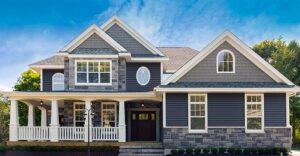
Discover the intricacies of Residential Window Replacement Costs, a vital guide for homeowners looking to update their living spaces with new windows. Residential window replacement costs vary widely based on the type, scale, and quality of the project. The following guide provides a realistic overview of what to expect financially for various types and scales of residential window replacement projects.
Basic Single-Pane Windows
This option is the most budget-friendly but offers minimal insulation. For basic, single-pane windows, homeowners can expect to spend approximately $100 to $250 per window.
Standard Double-Pane Windows
It provides better insulation and energy efficiency. A more common choice, standard double-pane windows, cost between $300 and $600 per window.
High-Efficiency Windows
For high-efficiency windows with features like low-E coatings or argon gas fills, prices can range from $400 to $900 per window. These are ideal for energy savings and improved home comfort.
Specialty or Custom Windows
Specialty windows, such as bay, bow, or custom-shaped windows, can cost anywhere from $800 to $2,500 or more, depending on the complexity and customization level.
Overall Project Costs
A whole-house window replacement typically ranges from $3,000 to $10,000 or more for standard homes, with larger homes or more high-end window choices increasing the total expense.
Cost of Full Window Replacement in Homes
For those looking to replace all windows in their home, estimates are general and can vary based on regional labor costs, the condition of existing frames, and any additional installation requirements, considering different house sizes and window types.
Small Houses (1-2 bedrooms):
In smaller homes, with fewer windows, total costs for standard double-pane windows might range from $3,000 to $5,000. Specialty windows or higher-end materials can increase this cost.
Medium-Sized Houses (3-4 bedrooms):
A medium-sized house typically incurs costs between $5,000 to $10,000 for standard window types. Custom or energy-efficient windows can push this towards $10,000 to $15,000.
Large Houses (5+ bedrooms):
Larger homes with more windows can expect costs from $10,000 to $20,000 or more, especially when opting for high-quality or custom window solutions.
Historical Home Window Replacement Cost Guide
Replacing windows in historical homes requires special considerations. While maintaining historical authenticity in window replacements can be costly, it preserves the property’s value and character, and when combined with modern efficiency upgrades, can offer long-term benefits. Upgrading windows in historical homes to more efficient models while maintaining historical integrity involves unique costs:
Customization and Materials: Historical windows often require custom sizes and specific materials to match the original design, significantly increasing costs. These might include wood frames, special glass, and period-accurate hardware.
Specialized Labor: Skilled craftsmen familiar with historical restoration techniques are often needed, leading to higher labor costs compared to standard installations.
Regulatory Compliance: Ensuring compliance with local historical preservation guidelines can necessitate additional steps and expenses, such as obtaining special permits or hiring consultants.
Energy Efficiency Modifications: Adding energy-efficient features like low-E coatings or inert gas fills to custom windows can further elevate the price, though they contribute to long-term savings.
Related: Home Window Replacement Guide
The Long-Term Value of Window Replacement
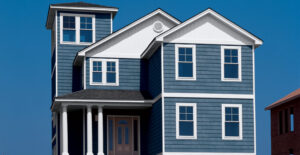
Discover the enduring benefits of window replacement and how it enhances your home’s value, energy efficiency, and aesthetics. Our comprehensive guide delves into the world of replacement windows, exploring a variety of window types including single-hung, double-hung, casement, bay, and energy-efficient windows. Learn about the materials that make up these windows, such as vinyl, wood, aluminum, and fiberglass, and understand how they contribute to the window replacement cost.
Window Types and Materials
We discuss the importance of considering window size, style, and location in your home, whether you’re looking at standard window replacements or custom windows. Uncover the advantages of different window materials, from the affordability of vinyl windows to the classic elegance of wood windows, and the durability of aluminum windows. Our guide also highlights the energy-saving benefits of double and triple pane windows, featuring low-E coatings and gas fills that not only reduce energy bills but also increase natural light and comfort in your home.
Upgrades
For those living in older homes, replacing windows can lead to significant energy-efficient upgrades. We cover the intricacies of window installation, the average cost of new windows, and the long-term value of investing in high-quality window frame materials. Whether you’re considering floor-to-ceiling windows, garden windows, or egress windows, we help you understand the impact of each choice on the overall window replacement costs.
Installation and Additional Costs
Furthermore, we touch upon the significance of choosing the right window companies and window installers, ensuring professional installation and addressing potential additional costs like disposal and cleanup, and any necessary structural repairs. Delve into the world of window styles, from transom windows to arched windows, and learn how they can enhance both the exterior and interior of your home.
Return on Investment
Window replacement can be a valuable investment. Analyzing the return on investment, considering factors like energy savings, increased commercial property value, and aesthetic appeal, maintenance savings and comfort and quality of life.
Energy Savings and Window Replacement
One of the biggest benefits of window replacement is energy savings. Energy-efficient windows can lead to substantial utility bill savings over time, primarily by improving thermal performance. The exact savings depend on factors like climate, energy rates, and the efficiency level of the previous windows, but the cumulative effect over years can be quite significant.
Legal and Regulatory Considerations
Permits and Regulations for Window Replacement
Navigating legal requirements is crucial. Homeowners are advised to consult with professional installers or local building authorities to understand the specific requirements in their area, ensuring their window replacement project is both compliant and safe.
Compliance with Building Codes in Window Replacement
Compliance with local building standards is crucial in window replacement projects to ensure safety, energy efficiency, and legal adherence. Non-compliance can lead to safety hazards, decreased energy efficiency, and legal ramifications, including fines or issues when selling the property. To ensure compliance, homeowners should:
Understand Local Codes: Research or consult local building authorities to understand specific standards and requirements for windows in your area, including size, egress, and energy efficiency standards.
Hire a Reputable Installer: Choose a professional window installer with knowledge of and experience in adhering to local building codes.
Obtain Necessary Permits: Secure all required permits before starting the project, as these indicate the project’s compliance with local standards.
Inspections: Have the installation inspected by a local authority or certified inspector to ensure it meets all regulations and codes.
By taking these steps, homeowners can ensure their window replacement project is not only compliant with local standards but also enhances the safety and efficiency of their property.
Trends Influencing Future Window Replacement
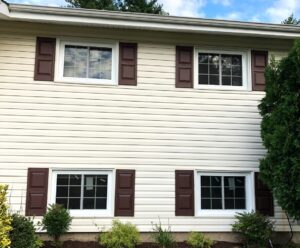
The window replacement industry is constantly evolving. Emerging trends in window technology, particularly smart windows and sustainable materials, are poised to significantly impact future costs in the industry. While smart windows and sustainable materials currently represent a higher upfront investment, their growing popularity and advancements in technology suggest a future where they become more affordable and widely adopted, offering homeowners not only cost savings but also environmental and functional benefits.
1. Smart Windows: These advanced windows, equipped with technologies like electrochromic glass, can automatically adjust tint based on sunlight intensity, offering improved energy efficiency. While currently more expensive than traditional windows, increased adoption and advancements in technology may lead to reduced costs over time. The added value of energy savings, improved comfort, and enhanced aesthetic appeal also contribute to a positive long-term financial outlook.
2. Sustainable Materials: There’s a growing trend towards using eco-friendly materials in window construction, such as recycled wood or composites, and high-performance materials that offer better insulation. While these sustainable options may have a higher initial cost compared to traditional materials, their long-term benefits include reduced environmental impact, lower energy consumption, and potential savings from energy rebates.
3. Impact on Costs: Initially, these innovative technologies and materials are likely to be more expensive than standard options. However, as they become more mainstream and production processes improve, costs are expected to decrease. The long-term savings in energy bills, maintenance, and the potential increase in property value also contribute to offsetting the initial investment.
Make an Informed Decision on Window Replacement
In wrapping up our comprehensive journey through the world of window replacement, it becomes clear that the key to a successful project lies in striking a harmonious balance between cost, efficiency, and aesthetics. While navigating the myriad options available, homeowners are encouraged to consider not just the immediate financial outlay but also the long-term value in terms of energy savings and property enhancement.
The right choice of windows can transform the energy footprint and visual appeal of your home, making it a sanctuary of comfort and style. This balance, though challenging, is attainable with careful planning, informed decision-making, and a keen eye on emerging trends and technologies. By weighing all these factors, you can make a window replacement choice that not only meets your current needs but also paves the way for a more efficient, beautiful, and valuable home.
Remember, the windows you choose are a reflection of your priorities and a testament to your home’s identity – choose wisely and enjoy the view!

